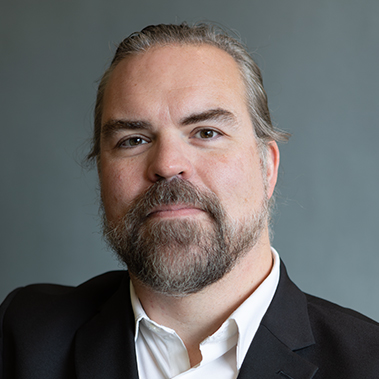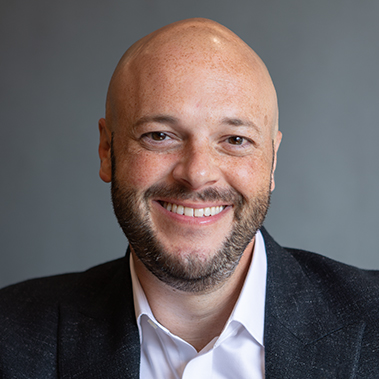 Rebecca Mason, an associate professor of philosophy at the University of San Francisco, worked for six grueling years, including three pandemic semesters, and finally earned tenure – what she calls the “Holy Grail of academe.” She writes, “I thought that finally earning tenure in the spring of 2021 would make me very, very happy. I would be borne forward inexorably on a wave of bliss that would carry me through the rest of my career, leaving behind my pre-tenure stressors and insecurities.”
Rebecca Mason, an associate professor of philosophy at the University of San Francisco, worked for six grueling years, including three pandemic semesters, and finally earned tenure – what she calls the “Holy Grail of academe.” She writes, “I thought that finally earning tenure in the spring of 2021 would make me very, very happy. I would be borne forward inexorably on a wave of bliss that would carry me through the rest of my career, leaving behind my pre-tenure stressors and insecurities.”
Boy, was she wrong. Instead of bliss, she felt depressed. Why? Keep reading.
 April is Stress Management Month so yes, let’s go there. Let’s talk about stress. Particularly, let’s discuss the kind of stress that pertains to women in the workplace and the stress that affects women who shoot for the stars. Women who want to climb the corporate ladder, who want the family, time to exercise, time to visit friends, time to watch Netflix… the list goes on and on.
April is Stress Management Month so yes, let’s go there. Let’s talk about stress. Particularly, let’s discuss the kind of stress that pertains to women in the workplace and the stress that affects women who shoot for the stars. Women who want to climb the corporate ladder, who want the family, time to exercise, time to visit friends, time to watch Netflix… the list goes on and on.
Ladies, have you ever had the experience of working hard to reach a goal in life, only to find that once you get there, you’re filled with sadness and stress, rather than happiness? Psychologists call this phenomenon the arrival fallacy.
Have you ever overrated the happiness levels you thought you would feel for a future event and that exaggeration leads to disappointment and sadness? This is the psychological phenomenon called impact bias.
And let’s not forget summit syndrome and how it paralyzes over-achievers! Once we conquer that lofty goal, instead of sitting there for awhile and enjoying it, we need to learn more, achieve more and surpass any previous stellar performance. Darn it.
Arrival fallacy + impact bias + summit syndrome? The perfect combination for stress.
The Challenge:
Success often brings us something we don’t plan for – a longing for something more.
The question is: Where do we find happiness? Does upping the ante just lead us to be more overwhelmed and stressed?
The arrival fallacy, impact bias, and summit syndrome all create this notion that we have to get somewhere in order to achieve both happiness and career satisfaction. This is a dangerous place for our minds to go, and ladies, we go there often.
Psychological Principle:
All three of these psychological principles teach us that we have to redefine what success is. The trick is to repackage our perspective by looking at the journey instead of the destination. We have shift to making the process of achieving our goals even more important than achieving the result.
 If you are constantly obsessing over, “how long do I need to eat healthy?” The answer is… forever. We might as well start enjoying vegetables. If you are always wondering, “When do I need to stop learning about my career” The answer is… never. We might as well fall in love with learning.
If you are constantly obsessing over, “how long do I need to eat healthy?” The answer is… forever. We might as well start enjoying vegetables. If you are always wondering, “When do I need to stop learning about my career” The answer is… never. We might as well fall in love with learning.
Mindset Shift:
- Fall in Love with the Process not the Outcome – Learn how to love new experiences, find ways to push yourself out of your comfort zone, put yourself in situations where things may not go as planned and develop skills such as creativity and decision-making. This way, whatever the outcome, the journey will have been worth the work.
- Stop the When/Then Dialogue – If you find yourself saying “I will be happy when I make a million dollars”, you are putting unrealistic pressure on the goal to contribute to your long-term mental well-being. Practice mindfulness and take note of what currently makes you happy.
- Practice Gratitude – A great place to start being mindful and in the present moment is to jot down a few things you are grateful for.
- Think about Your Thinking – In psychology, metacognition is “thinking about thinking” or “knowing about knowing.” It’s being aware of your own awareness so you can determine the best strategies for learning and problem-solving, as well as when to apply them.
- Be Proactive about Stress – Stress is going to happen. Instead of trying to avoid it, build your best defense for when it hits hard. Start with small changes in your routine to help build resilience to stressful circumstances. Work in time to exercise, eat healthy foods, participate in relaxing activities, and sleep. In fact, including a regimen of exercise, which for some may include yoga or meditation, can be very effective when feeling stressed.
Performance Shift:
- Celebrate Small Successes – Minor milestones can act as catalysts for bigger tasks. A micro-win might include getting a call scheduled with a new client or walking one mile for the first time without stopping. Focusing on smaller wins will make you feel more productive and happier, even though you have not yet reached your long-term goal. Give yourself levels to climb, and when you reach them, stop and celebrate. Then keep climbing.
 Find Creative Outlets – Science shows that being creative helps with stress management. Used to play piano? Go play a song this week.
Find Creative Outlets – Science shows that being creative helps with stress management. Used to play piano? Go play a song this week.- Manage the Device Time – Manage your time on technology. Technology is supposed to help us not cause more stress. You are in control of your technology boundaries.
- Get More Sleep – We are a country of people who are totally sleep deprived. Get some sleep and pay attention to how it affects your mood and stress.
- Track Your Stressors – What sets you off the most? Take note and rank your stressors from Most to Least and find ways to chip away at #1.
There are many psychological stressors that us high achievers have to be careful with. Ladies, go ahead and shoot for the big stars but make sure you enjoy and appreciate the little stars along the way.

It’s the Journey, Not the Destination: How Metaphor Drives Growth After Goal Attainment
By Szu-chi Huang, Jennifer Aaker
Journal of Personality and Social Psychology. October 2019. Vol. 117, Issue 4, Pages 697-720.
https://www.chronicle.com/article/tenure-and-the-arrival-fallacy











0 Comments